Chapter 9: How to Conquer Corporations on the California Bar Exam
 Corporations on the California Bar Exam
Corporations on the California Bar Exam
Corporations is regularly tested on the California Bar Exam. The good news is that it is somewhat predictable in terms of how it is tested.
Here, we tell you how to approach Corporations essays on the California Bar Exam, including some of the highly tested issues in Corporations questions.
Corporations on the California Bar Exam
1. First, know how Corporations is tested.
The California Bar Exam has virtually always tested general law (rather than California law) on Corporations essay questions.
Corporations is now tested on the California Bar Exam under the subject of Business Associations, along with Agency and Partnership.
Corporations is sometimes tested alone but is also frequently combined with Agency and Partnership and with Professional Responsibility.
2. Be aware of the highly tested issues.
The State Bar of California tests certain issues repeatedly on Corporations essay questions. (We have a nice summary of these in our California Bar Exam One-Sheets.)
Some of the highly tested Corporations topics on the California Bar Exam essay questions include the following:
- The duty of care and the business-judgment rule: There is a presumption that in making a business decision, the directors acted on an informed basis, in good faith, and with the honest belief that the action taken was in the best interest of the company.
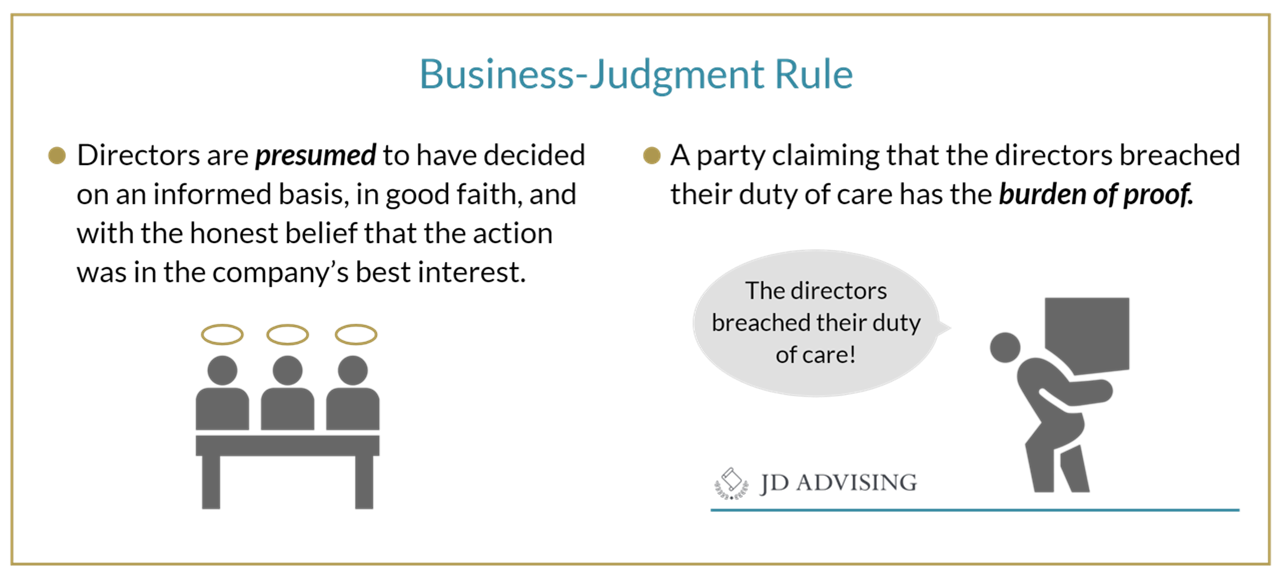
- The duty of loyalty: The duty of loyalty is an issue if the director (1) is on both sides of the transaction (self-dealing), (2) competes with the corporation, or (3) usurps a corporate opportunity.
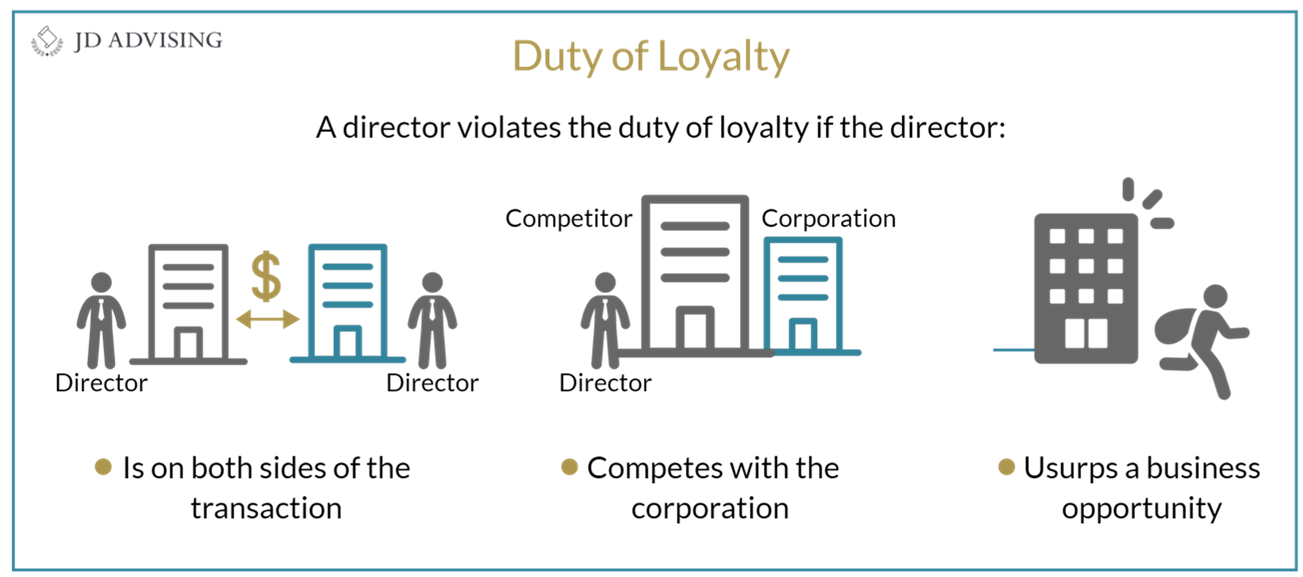
- Piercing the corporate veil: Generally, the law treats a corporation as a separate entity from its shareholders for liability purposes. However, in limited circumstances, courts will disregard the limited liability corporate form and hold a shareholder personally liable for corporate debt. To pierce the corporate veil, the plaintiff generally must show:
- undercapitalization of the business, or
- an alter ego theory, alleging that the corporation is acting as an alter ego of the shareholder(s) (e.g., if the shareholders fail to follow formalities, commingle assets for personal and corporate use, fail to keep proper accounting, etc.); or
- the corporation has been used to commit a fraud.
- Actual and apparent authority (when tested in combination with Agency): Corporate officers have actual or apparent authority to bind the corporation in many instances. For example, a corporate president has actual implied authority to enter into a contract in the ordinary course of business.
3. Be aware of ways to approach highly tested topics.
We recommend looking at past Corporations essays so you can see how to approach the highly tested topics.
For example:
- When the duty of loyalty is tested, it is also a good idea to discuss defenses to liability for a breach of the duty of loyalty, even if these defenses do not seem applicable.
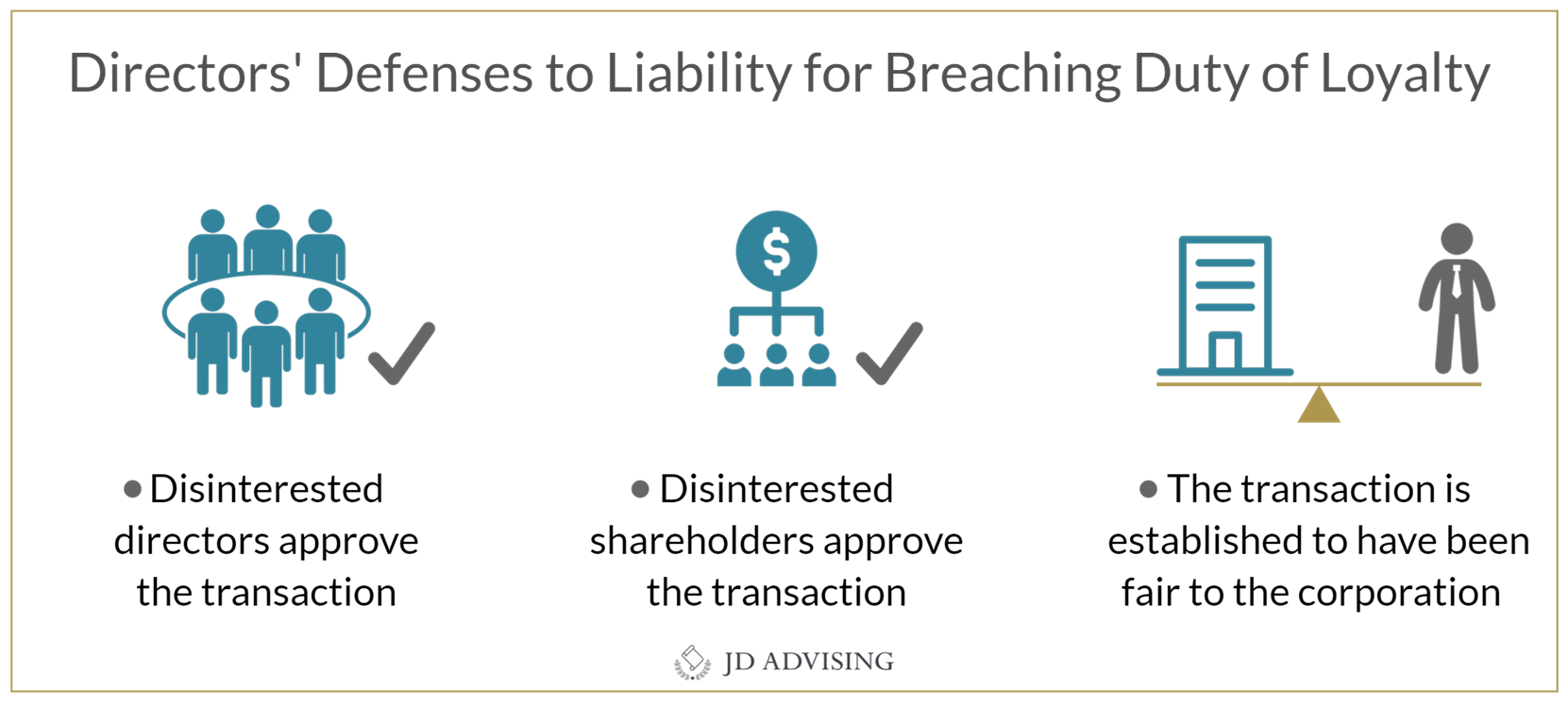
- When piercing the corporate veil is an issue, you should talk about the three theories under which a plaintiff could pierce the corporate veil (undercapitalization, alter ego theory, and fraud) even if only one is applicable.
Using a general approach for what the examiners expect to see when certain issues are tested will help maximize your score on a Corporations essay question. Further, it will save you time since you will not have to spend too much time thinking about what to write if you already have an approach down.
4. Be aware of the basics of Corporations law.
Many students struggle with basic Corporations principles. If you do not understand basic principles (such as the role of directors and the role of shareholders) then you will find it very hard to memorize the law. Further, even if you are able to memorize the law, you will have a hard time applying it to fact patterns.
So, it is a good idea to get the basics down first!
Here are some Corporations basics:
- Directors manage the corporation and meet regularly. Directors must vote responsibly, so they cannot vote by proxy or voting agreement. (Their judgment should not be unfairly affected by a proxy or voting agreement!). The business-judgment rule presumes that directors act reasonably.
- Shareholders own the corporation. Because they are merely owners, shareholders do not meet as often as directors but are entitled to annual meetings. Shareholders must receive special notice for meetings. Shareholders can vote by proxy or agreement because they do not manage the corporation.
- Officers are agents of the corporation. Officers are the president, secretary, treasurer, etc. They have the power to enter into transactions on behalf of the corporation.
- A corporation must be incorporated (i.e., articles of incorporation must be filed with the state) in order for a valid corporation to be formed.
5. Be aware of Corporations vocabulary
Some students are unfamiliar with the vocabulary used in Corporations essay questions. Here, we give a layman’s version of some vocabulary terms that may help you remember them!
Layman’s version of Corporations vocabulary:
- Articles of incorporation: A fancy word for the corporation’s contract with the state. The articles include basic information like the corporation’s name, address, names of incorporators, etc. Additional provisions can be added. Because the corporation files these with the state, they are public.
- Dividend: A fancy word for the corporation’s profits. Shareholders buy a corporation’s shares to receive profits.
- Subscription: A fancy word for an offer to buy a certain number of a corporation’s shares. In general, the offer must be in a signed writing and state a price.
- Promoter: This is someone who “promotes” a corporation before it is even formed by entering into preincorporation contracts on behalf of the corporation. For example, you and I decide to form a corporation to sell coffee. We send in our articles of incorporation to the state (but it takes a while to get them back) and we are eager to get started on our business idea. Thus, I personally sign a lease with a landlord agreeing to rent space for one year. I sign my name, “John Doe, on behalf of Coffee, Inc., a corporation to be formed.” I am “promoting” the corporation by entering into leases on its behalf before it is even in existence. Thus, I am the promoter. I am liable on the lease.
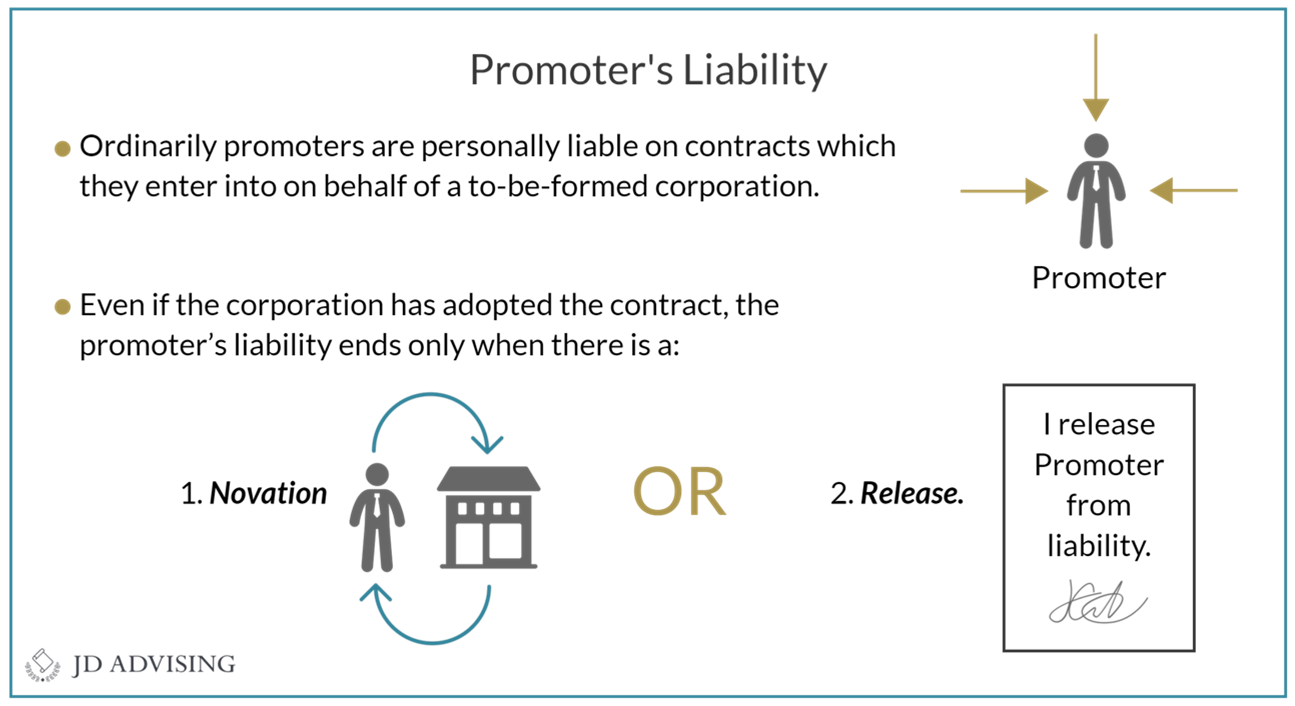
- Ratify: A fancy word for approving the acts of another—often, those of the promotor. The corporation in the above example is liable if it ratifies or approves of the contract. It could expressly ratify the lease by signing its name to it (and becoming liable) or impliedly ratify the lease (e.g., by moving in and acting as if it is part of the lease agreement!)
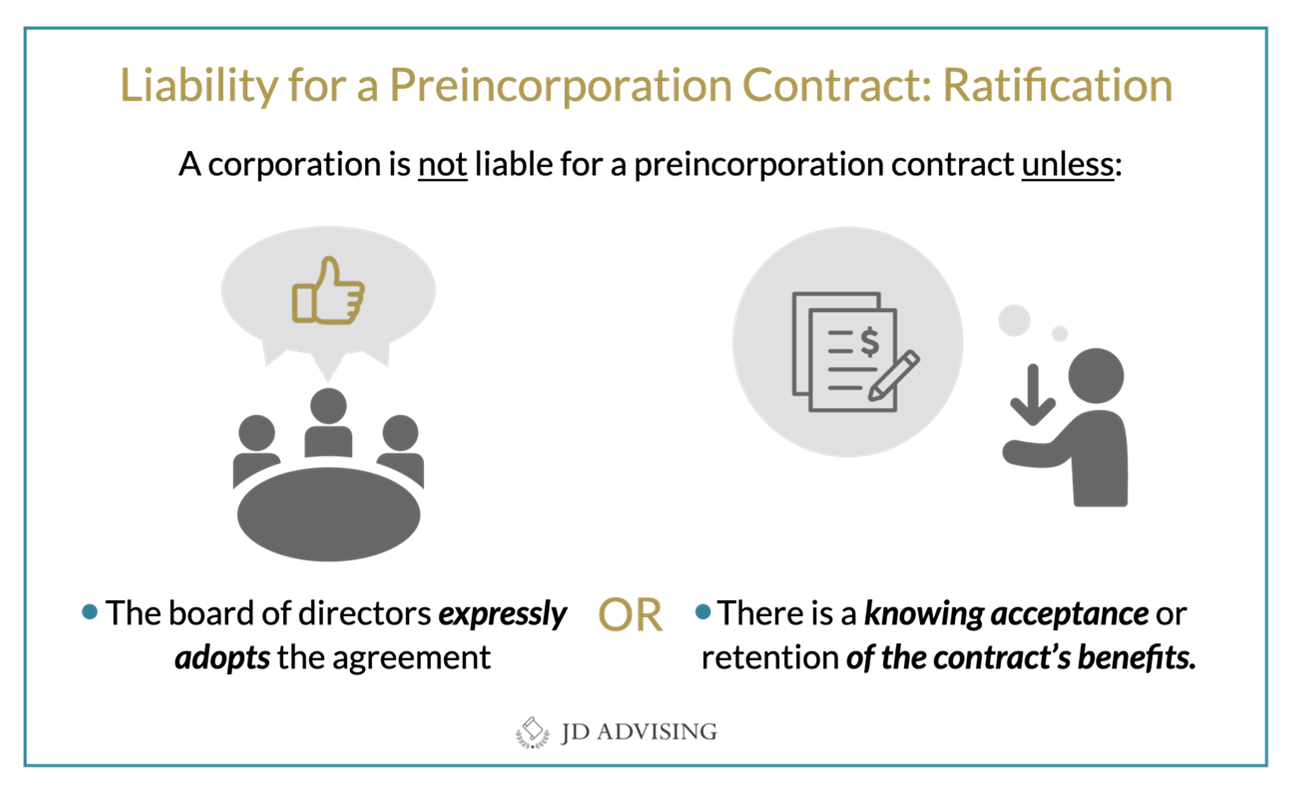
- Quorum: A fancy word for the majority of the directors or outstanding shares entitled to vote represented at the meeting in person or by proxy. (Look at the number of shares present, not the number of people present for a shareholder quorum).
Being familiar with key vocabulary will help you gain credibility with the grader and will help maximize your bar exam essay score!
6. Practice!
The best way to excel at Corporations essay questions on the California Bar Exam is to practice writing answers to essay questions. This will help you become acquainted with how Corporations is tested and will help you master the highly tested issues.
Here are a few essay questions with student answers that we recommend you practice to get exposed to some highly tested topics in Corporations essay questions:
- October 2020 Corporations essay: this essay covers board meetings, quorums, notice for board meetings, a shareholder’s right to inspect corporate books and records, derivative action, the role of directors, dividends, the duty of care, the duty of the loyalty, and defenses to a breach of loyalty (see essay questions #2 on the exam under Business Associations).
- February 2017 Corporations essay: this essay covers piercing the corporate veil, abuse by majority shareholders, the duty of loyalty, the duty of care, derivative action, and distribution of assets upon dissolution (see essay question #4 on the exam under Business Associations).
- July 2015 Corporations essay (combined with Professional Responsibility): this exam covers the duty of loyalty, the duty of care, issuance of stock for less than par value, fundamental changes, and derivative action (see essay question # 5 on the exam under Business Associations).
Good luck studying for the California Bar Exam!
Go to the next topic, Chapter 10: Criminal Law.
Looking to Pass the California Bar Exam?
📚 Ready to Conquer the California Bar Exam?
- Free Bar Exam Resource Center: Your gateway to handpicked guides, webinars, and articles.
- Expert-Written Bar Exam Guides: Get a CA bar exam essay guide, strategies for passing, and advice on choosing the ideal tutor.
Top Resources Recommended by our Students:
- Bar Exam Outlines: Our comprehensive and condensed bar exam outlines present key information in an organized, easy-to-digest layout.
- California One-Sheets and Baby Bar One-Sheets: Consistently 5-star rated by our students.
- California Essay Exam Mastery Class: Target the most tested and challenging California bar segments.
- California and Baby Bar Exam Private Tutoring: Get personalized tutoring by bar exam experts.
- On Demand Bar Exam Course: 5-star rated for your comprehensive preparation. Free course preview available!
- Real MBE Questions: Perfect your practice with the best of practice materials.
🔥 NEW! Check out our Repeat Taker Bar Exam Course and our unrivaled platinum Guarantee Pass Program!





Leave a Reply
Want to join the discussion?Feel free to contribute!